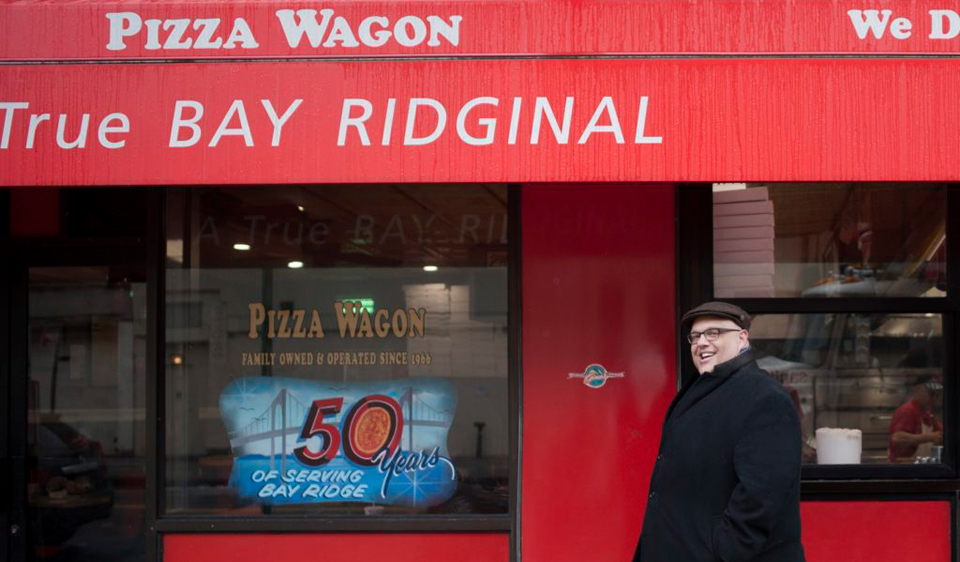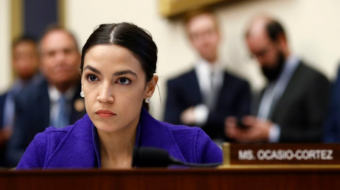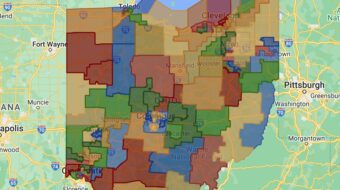
The 2018 midterm election saw a record-setting turnout, but slightly less than half of eligible voters did so. Detractors of voting say they are not represented, so why bother? Those concerned with diversity in government will boycott elections without candidates they do not identify with; as well as boycotting elections which only contain candidates that look like the groups historically exploiting others.
Sen. Bernie Sanders has generated a lot of excitement among youth, winning the under 30-year-old vote by a wide margin. And yet, youth voter turnout has been lagging during the primaries.
The root of the problem is still not enough good people running for office. Running for office is a negative experience for many. The media may abuse you. The public may ostracize you. Opposition will redbait you. Your past will be exhaustively investigated and publicized. Once elected, the chances of the attacks continuing are high. The negative experience causes a great many good people to abstain, but not everyone.
Justin Brannan is a New York City Council member, representing the 43rd District. Before public office and union activism, Councilman Brannan was known more famously for his role as guitar player in the hardcore bands Indecision and Most Precious Blood.
Hardcore, like most genres of punk music, is politically driven. However, rarely do members of politically-minded bands take part in grassroots activism, much less run for office. Recently, we were able to catch up with Brannan and asked a few questions about his experiences.
When I pressed Brannan on what convinced him to throw his hat into a campaign for election, he admitted that politics had not originally been his passion.
JB: Running for office was never something I thought about. I certainly wasn’t one of these little kids who ran around in a bowtie and told everyone I wanted to be the President of the United States when I grew up. As a teenager, I began as an activist – getting involved with AIDS awareness and animal rights in New York City. But it wasn’t until I made the connection between activism and electoral politics.
Brannan draws a line between punk and local politics by illustrating that neither necessitates classical training.
JB: I never took a political science class. I’m not a lawyer. But I love my community and I love helping people. That’s all you need. I remember being a kid and thinking I had to learn how to read music if I ever wanted to be in a real band. Then I discovered punk rock and power chords and that all went out the window. Punk rock and power chords took me around the world.
Between organizing around local issues and running for office, Brannon organized his workplace, WNEW, into the performers’ union SAG-AFTRA. Punks have always been overachievers in pointing out injustice. Despite employees perceiving NYC radio positions as a dream job, unpaid overtime and the constant threat of being replaced were the issues Brannon organized around.
JB: I got a bunch of my co-workers together and we put our foot down. I became a de facto shop steward and union organizer basically overnight. It felt great because employees had put up with this for years and I was able to change that. That definitely inspired me and it’s part of the reason why I will always consider myself a union guy whether or not I’m currently part of a union. I have endless respect for union labor organizers.
Another roadblock for some not wanting to get involved in electoral politics is that the expectations for victory are impossible. Supporters of Jill Stein in 2016 are a good example. Activists for her campaign worked tirelessly though the Green Party held zero elected local, state, or national positions at the time. After the defeat, many of them resigned from political action. Councilman Brannan started small and local.
JB: [Politics] felt foreign to me. It was a bunch of curmudgeons in suits and ties in D.C. babbling about stuff that didn’t really affect my daily life. I knew my rent was due, and I had to buy groceries with what was left. It wasn’t until years later that I fell in love with local government. I could help people with their problems in real-time. I got involved locally as a volunteer. One thing led to another and I wound up taking a job working for my predecessor. The feeling of someone walking into the office with a problem and you can undo that knot for them and send them on their way was intoxicating.
Many who run for office say the worst part of the campaign are the attack ads. The opposition, the New York City Republicans, ran ads over Brannan’s music with lyrics critical of organized religion.
JB: I think and hope we are finally heading towards a place where people want their elected representatives to be authentic, real people and not robots hatched from eggs with no past to speak of. I don’t think politicians give voters enough credit. [Voters want] someone who’s been through the same stuff they’ve been through rather than for and what your values are, as well as someone they can relate to. You can’t fake authenticity. And like Jean-Paul Sartre said: “if you seek authenticity for authenticity’s sake you are no longer authentic.”
I toured the world in a van, sleeping on concrete floors, meeting people across 50 countries, learning different cultures. Those experiences made me who I am and prepared me to run for office. We need to break that myth and that mold. We need more real people running for office.
In addition to having been a touring musician, I was a pizza delivery boy, a radio announcer, an office clerk and a bouncer all before I really got involved with politics. Having real world, real life experience absolutely makes you a better politician. That’s why these people criticizing Alexandria Ocasio-Cortez for having been a bartender are insane.
Class, and more accurately what it means to be working class, is a modern mainstream topic. The concept of a working-class caricature in a hardhat fixing a transformer atop a power line pole, or a Lucille Ball-esque woman in a kerchief on an assembly line, is quickly giving way to a broader, more honest depiction of everyday nurses, custodians, retail workers, and adjunct professors. As acceptance of inclusion in the working class grows, so does solidarity. And the desire to be part of the propertied class gives way to disdain for the 1%, not from jealousy but from class consciousness.
When pressed about his working family, Justin explained the values instilled in his parents.

JB: My dad was a record salesman and my mom is still a teacher. They taught me about civil rights, fairness, justice, the importance of helping people in need, and standing up for those who had no one to stand up for them. But in their own way they also taught me about that basic human social contract where nothing happens in a silo and how we’re all in this together. How none of us are free until we are all free.
I think it’s more important than ever these days where this “every man for himself” bullshit seems to be the way for so many. It’s no secret that we’re not living in the easiest of times. Wealth is concentrated in the hands of fewer people than ever before. Our wages aren’t keeping up with the cost of living. Younger generations are saddled with debt, older generations are still living paycheck to paycheck when they thought they’d be in a better place by now. People are working 2-3 jobs just to stay alive. And so, you can’t blame people for being fed-up, angry, frustrated and wanting to take out their anger on something, anything.
But what’s disturbing me, what’s keeping me up at night, is watching people blame the little guy – the person they perceive to be beneath them – for their woes. Blaming immigrants, blaming poor people, blaming people who are also down on their luck. Meanwhile, it’s not that little guy who is stealing wages. It’s not that little guy who is monopolizing entire industries and wiping out jobs. It’s not the little guy who is hiking up rents, profiting off of basic needs like healthcare, destroying the air we breathe and the water we drink, and lobbying our government to avoid paying their share of taxes.
It’s the big guy — the guy on top – the 1%. It’s the guy with the most power and access. And trust me, the big guy absolutely wants us to blame the little guy, so that we’re distracted when he’s rifling through our pockets. I want people to start punching up, not down. I want us to work together to fight the big guy because that’s how we will win and that’s how we can make this place better for everyone. We can’t do it without each other, and we certainly can’t do it if we’re at each other’s throats. There’s enough for all of us, as long as we make the big guy pay up.
The question of the effectiveness of political importance in music is ever-present, and what even makes a song politically important. A long-held belief is that “politics and religion” are too taboo a subject to approach in polite conversation. On the other side of that rule of etiquette is the need to share political views and even proselytize against (or for) religion. Punk in its many forms is most effective when critical and attempting to hold wrongdoers accountable.
Councilman Brannan reflects on his own music, as well as the bands that inspired him.
JB: Looking back at all the songs we wrote, it was like our diary. It’s a document of what we were all going through at that time. That’s what I always loved about hardcore and punk. I remember when I first got Black Flag’s “Damaged” record and it was like they had been reading my mail or tapping my phone because the things they were singing about were precisely the things I was going through in my life at the time. I can honestly say, growing up, I learned just as much about world history listening to The Minutemen, Napalm Death, and The Dead Kennedys as I did in history class.
People’s World truly appreciates Councilman Brannan’s time. The author is quite the longtime fan of his music, especially “Believe” by Indecision and “Your Picture Hung Itself” by Most Precious Blood.












Comments